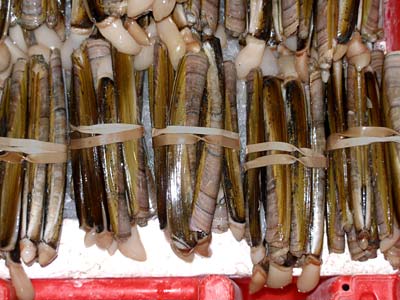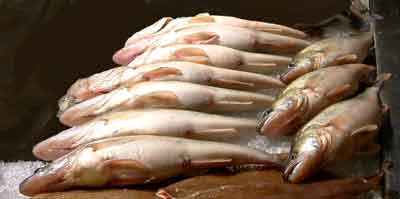
Razor shell. A type of long clam which beds itself into the sand.
A plant native to Central America and commonly used in El Salvador, particularly in pupusas, a corn-based food. It used to be known as ‘quilite’ meaning ‘edible herb’. Several herbs across Central and Latin America are known by this unspecific name. The flowers are the part of the plant used in cuisine and have an unusual, pungent flavour.
Three bearded rockling, onos. A small Mediterranean fish, the largest of which are prepared in the same way as whiting.

Pike-perch or zander. It is a river fish with delicate flavour. They can be differentiated from the perch by the relatively large space between their dorsal fins and their elongate, fusiform body, which is never so steeply arched behind the head as it is in the perch. The flesh is firm and white with a stronger flavour than cod.
Lucmo. A fruit native to the dry subtropical Andean coastal valleys of Peru, Ecuador, and introduced in Chile. It is very nutritious, having high levels of carotene and vitamin B3. The fruits are round, about the size of a peach, and greenish with tangy orange-tinged flesh, widely used in desserts and, in particular, ice creams. The flesh surrounds four large stones which must be discarded.